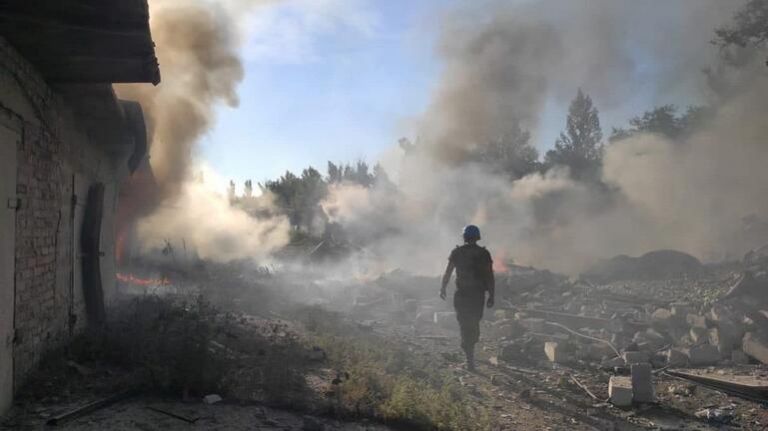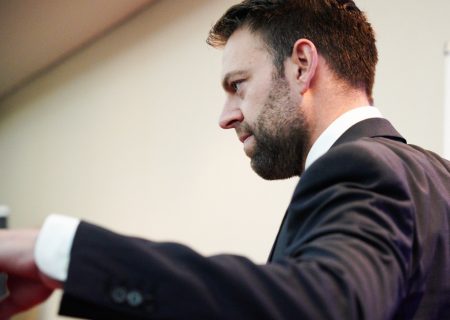Undoubtedly, we are living in a turbulent world, full of uncertainties, dangers, and threats.
The stable certainties of past decades have clearly receded.
Climate change has begun to produce horrible results globally. The number of authoritarian and revisionist leaders is dangerously growing, and along with that we see a revival of expansionist dreams of conquest that directly imperil peace on both a local and international level.
Russian President Vladimir Putin’s war against Ukraine highlights the fact that the world is on a disorderly track.
The example of Turkey is characteristic.
There, the entire political system is operating in a state of nationalistic convulsion and dreams of the Ottoman grandeur of past centuries. On an almost daily basis, Ankara threatens Greece with war scenarios involving the conquest of Greek islands.
Meanwhile, Europe, in opposing the Russian invasion and supporting Ukraine’s defences, is confronted with energy blackmail and threatened by Putin with a cutting off of flows of natural gas.
Most citizens of Europe, including Greece, naturally are anxious about energy sufficiency in the coming winter.
They are terrified by the very thought that they will have to endure cold winter nights, due to the skyrocketing prices of petrol, natural gas, and electricity.
The quadruple challenge of war, an energy crisis, galloping inflation, and the looming prospect of economic recession, exacerbates the anxieties and concerns of citizens and tests the endurance of European governments.
It is by now clear, however, that Europe has decided to shoulder the burden of the cost of the war.
Albeit belatedly, it is taking measures in order to temper the economic repercussions of the energy crisis.
It has chosen to support, for environmental reasons, policies to free itself from dependence on fossil fuels, with massive and organised investments in renewable energy sources.
On the other hand, the Russian side over the last days has revealed incredible weaknesses.
Especially in northeastern Ukraine, Russia proved unable to defend he territory that it had conquered over the past months.
The Russian Army, which in the eyes of many had a mythical force, literally beat a hasty retreat.
Expert military analysts are revealing that the once battleworthy “Red Army” lacks chains of oversight and supply.
The Russian arms industry is unable to make up for losses or meet the maintenance and servicing needs of armoured vehicles and war planes.
What is worse, morale has been lost and soldiers feel that they are being offered up to the Ukrainian forces as cannon fodder.
Already, tens of thousands of Russian soldiers have been killed and the Russian Army is in a state of breakdown.
For the time being, Putin is hiding the cost of the senseless war that he decided to prosecute.
Yet, of late, the voices of criticism in Russia are multiplying, despite the state of terror and censorship that Putin has imposed.
Certainly, at some point he will be called to account for the crimes that he has perpetrated against his people, Europe, and the world.
At the recent Shanghai Cooperation Organisation Summit in Samarkand, Chinese President Xi Jinping expresses questions and concerns about what is going on in Ukraine. He did not attend the leaders’ dinner with Putin, Turkish President Recep Tayyip Erdogan, and authoritarian leaders of Central Asia
In his own way, he signaled that he does not want a further disturbance of commerce, on the smooth operation of which China’s enormous economic growth over the last three decades has been based.
The common conviction in Europe is that Putin will not be able to withstand the test of time, and that his blackmail sooner or later will collapse, along with the natural gas “bubble”.
Officials in Brussels believe that, “We shall wake up one day and something very serious will have occurred in Moscow.”
If such predictions are confirmed, Greece’s audacious neighbour, Turkey, will also realise that violence does not offer a solution and that in our era threats, blackmail, and groundless claims cannot be tolerated.
One can be fairly optimistic, therefore, that the current dystopian reality will be followed by a new spring for the contemporary world, as long as we endure the current, problematical confluence of events and systematically prepare for the next day.





